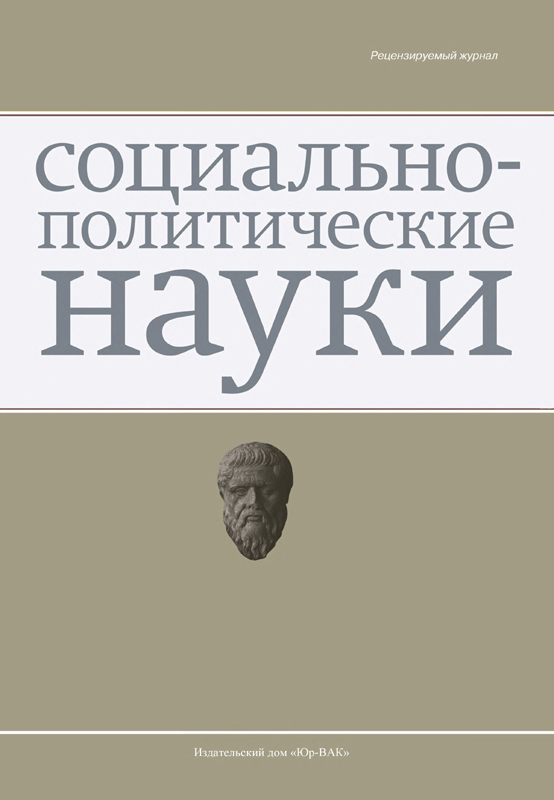Understanding the Phenomenon of Religion in a Cross-Cultural Context: From Cicero to Modern Youth
- Autores: Arinin E.I.1, Petrosyan D.I.1,2, Tsyganov R.V.1
-
Afiliações:
- Vladimir State University named after Alexander Grigorievich and Nikolai Grigorievich Stoletov
- Vladimir Branch of Russian Academy of National Economy and Public Administration (RANEPA)
- Edição: Volume 12, Nº 4 (2022)
- Páginas: 68-76
- Seção: Articles
- URL: https://journals.eco-vector.com/2223-0092/article/view/535782
- DOI: https://doi.org/10.33693/2223-0092-2022-12-4-68-76
- ID: 535782
Citar
Texto integral
Resumo
Palavras-chave
Texto integral
Sobre autores
Evgeny Arinin
Vladimir State University named after Alexander Grigorievich and Nikolai Grigorievich Stoletov
Email: eiarinin@mail.ru
Dr. Sci. (Philos.), Professor; Head of the Department of Philosophy and Religious Studies Vladimir, Russian Federation
Dmitry Petrosyan
Vladimir State University named after Alexander Grigorievich and Nikolai Grigorievich Stoletov; Vladimir Branch of Russian Academy of National Economy and Public Administration (RANEPA)
Email: ilyich87@yandex.ru
Cand. Sci. (Philos.), Associate Professor; assistant professor at the Department of Sociology; assistant professor at the Department of Social and Humanitarian Studies Vladimir, Russian Federation
Roman Tsyganov
Vladimir State University named after Alexander Grigorievich and Nikolai Grigorievich Stoletov
Email: tsiganov2000@mail.ru
post-graduate student at the Depart-ment of Philosophy and Religious Studies Vladimir, Russian Federation
Bibliografia
- Cole S. Cicero and the rise of deification at Rome. Cambridge: Cambridge University Press, 2014. P. 14.
- Harries J. The law in Cicero’s writing. In: The Cambridge Companion to Cicero by Catherine Steel. Cambridge University Press, 2013. P. 113.
- Lisdorf A. The conflict over Cicero’s house: An analysis of the ritual element in De domo sua // Numen. 2005. Vol. 52. P. 448.
- Riggsby A.M. Brill’s Post reditum speeches. In: Companion to Cicero: Oratory and rhetoric / Ed. by J.M. May. Leiden; Boston; Köln: Brill, 2002. P. 159.
- Arinin E.I., Glagolev V.S., Markova N.M. Paradoxes of identity with ἄθεος and religio in religious discussions of modern Russia. Problems of Philosophy. 2021. No. 9. P. 155. (In Rus.)
- Gorenshtein V.O. Introductory article. Bulletin of Ancient History. 1987. No. 1. P. 261. (In Rus.)
- Markova N.M., Lyutaeva M.S. Folk religion as a phenomenon of intercultural communication: conceptualization of the concept of “native”/“vernacular”. Concept: Philosophy, Religion, Culture. 2022. Vol. 6. No. 1. Pp. 125-137. (In Rus.)
- Ciceron Mark Tulliy. Speech to the people upon returning from exile. Bulletin of Ancient History. 1987. No. 1. Pp. 263, 268. (In Rus.)
- Ciceron Mark Tulliy. Speeches in two volumes. Vol. II. Moscow: AN SSSR, 1962.
- Shokhin V.K. Philosophy of religion and its historical forms (antiquity - the end of the 18th century). Moscow: Alfa-M, Institute of Physics of the Russian Academy of Sciences, 2010. P. 278.
Arquivos suplementares









